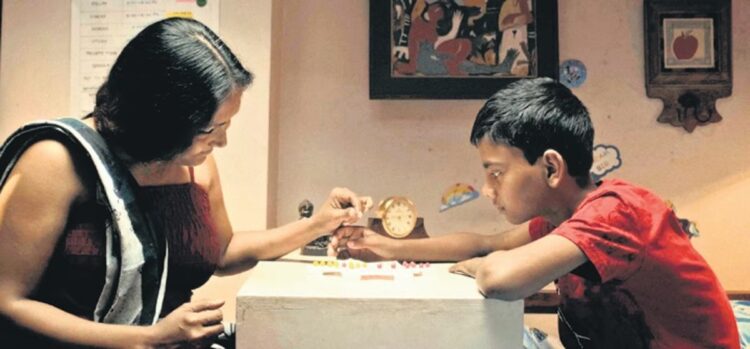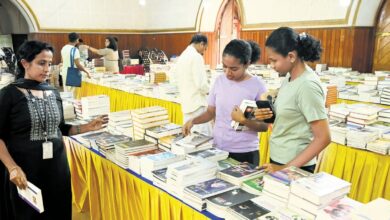Concerning a boy
Two subjects irritate Indians more than any other. Sexuality and disability continue to be marginalized topics in society. For this reason, singer-poet Mitul Dutta’s 24-minute short film Button Hole—which explores the sexual urges of a teenage autistic boy—is significant. It has been nominated for the 7th New Delhi Film Festival (NDFF), which takes place on March 28th, in the Best Short Film category.

The movie opens with the youngster in increasing agony as he tries to fit a button from his school uniform through a buttonhole. His mother then rushes to his aid. The metaphor at the heart of the narrative is the act of inserting a button through its buttonhole. It stands for his incapacity to accept his adolescent physique and his comprehension of his own sexual maturation. Dutta depicts a tender image of a mother and son, with the husband absent, as well as the youngster who is teased at school for being different. Though the movie’s conclusion offers optimism, it depicts them negotiating a challenging and perplexing period in their lives together.
Several accolades, including the Sahitya Akademi Travelling Grant, Sanskriti Award, Yuva Puraskar, Krittibas Puraskar, Bharatiya Bhasha Parishad, and Junior Fellowship in Literature from the Ministry of Culture, have been given to Dutta for her work. Dutta claims that the movie is based on real-life experiences. Her sister was left with a 17-year-old son with autism and a daughter when she died in an accident in 2021. Dutta took over his care when his father remarried and his mother passed away. It was at this point that she became aware of the challenges that children with autism face as teenagers.
“As a child, he had no help or counseling. Dutta laments the lack of awareness among certain individuals about the requirements of children with impairments. “He did not talk or express himself.” She arranged for her nephew to see a voice therapist, but the more challenging aspect was the boy’s incapacity to distinguish between his private and public lives. When he played with his privates, he thought of them as his “toys,” which he wanted other people to see. Dutta consulted a friend, a teacher for children with disabilities, and the mother of an autistic kid; she suggested giving the youngster some “private time” to himself. This is where Dutta claims the inspiration for the movie came from.
According to Dutta, “challenges faced by children and the role of parents and society in general in tackling these challenges” have been a major theme in Indian film in recent years. The physical difficulties that come with approaching puberty and the child’s reaction to discovering their new sexual identity, according to Dutta, are still largely unstudied.
This region is explored in Button Hole. Dutta made his directorial debut with Button Hole, which debuted at the International Purple Fest in Goa in January. “The triumph of the life force is married easily to the sexual liberation of a young adolescent,” critic Partha Prathim Ghosh said of Button Hole, drawing comparisons to Aamir Khan’s 2007 film Taare Zameen Par, which also centers on an autistic youngster.
According to Dutta, the movie is about parenting just as much as it is about autism and puberty. She claims that “the film is about new-age parenting as much as teenage autistic boys.” In the movie, the mother supports her son through puberty without hesitation. Ignoring his friends’ taunting, he becomes fond of an understanding girl at school.
In its brief running length, the video delivers a poignant tale that is firmly grounded in a very practical knowledge of the needs of children with disabilities. It never once veers into sentimentalism or superfluity. The meaning is evident. There’s no one-size-fits-all approach to parenting or a set route to adulthood.






